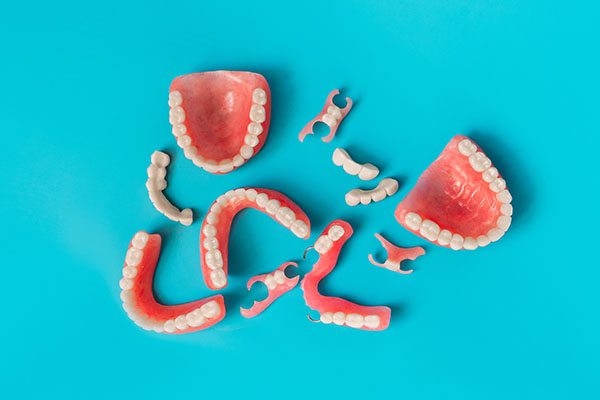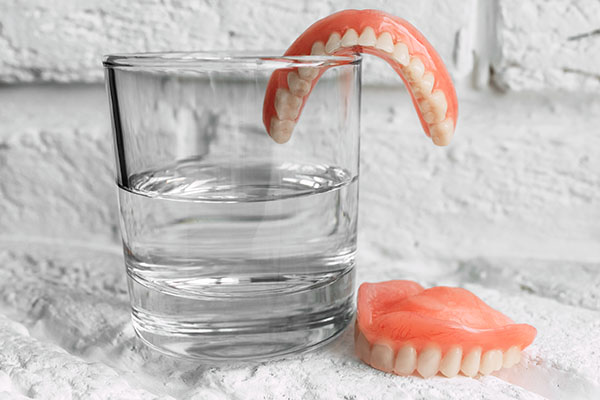What Is Restorative Dentistry?

The goal of restorative dentistry is to repair a smile that is damaged to achieve optimal oral health, appearance, and function. This review discusses restorative dentistry and highlights the various services that this branch of dentistry includes.
An overview of restorative dentistry
Learning more about the benefits of restorative dental services can help you determine how a restorative dentistry visit can benefit you. The following are some things to know about restorative dentistry, including how it is defined, who offers treatment, how to personalize your treatment plan, and more.
Restorative dentistry defined
Restorative dentistry includes a set of dental services that aim to fix teeth and gums that are damaged from oral hygiene concerns or dental trauma. It is a relatively broad term, and the services that are included in restorative dentistry include but are not limited to:
- Dental crowns
- Dental bonding
- Dental fillings
- Porcelain veneers
- Dental implants
- Fixed bridges
- Root canal procedures
There are a variety of purposes for restorative dentistry; the primary purpose is generally to improve the patient’s oral health. However, there are aesthetic benefits of many restorative dentistry services as well.
Who offers restorative dentistry?
Most “restorative dentists” practice under other titles, such as a “general dentist” or a “family dentist.” The fact is most licensed dental professionals offer a set of restorative dentistry services, but the exact services that they offer may vary for each dentist with some offering a more extensive list of restorative services than others. To determine whether a particular dentist can meet your restorative needs, check their list of services on their website and/or schedule a consultation visit.
How to personalize a restorative dentistry treatment plan
During a consultation visit with a dentist, they may begin by discussing the reason for your visit and performing diagnostic services (e.g., dental x-rays and an oral examination). Based on the patient’s treatment goals and what is discovered through the diagnostic services, they may recommend certain restorative dentistry treatments to help them achieve the goals they have for their oral health and smile. This may involve multiple services over the course of several dental visits.
Preventive dentistry after restorative dentistry services
Restorative dentistry services are available to address any oral health concerns or dental trauma accidents that occur, but the ultimate goal for dentists is to help patients prevent the need for restorative dentistry through preventive treatments. After restorative dentistry is performed, the dentist and the patient can discuss a way to prevent future concerns through good oral hygiene practices, regular cleaning visits, and other preventive measures such as fluoride treatment, dental sealants, and bruxism guards.
Frequently asked questions about restorative dentistry
To provide you with more details about restorative dentistry, the following are answers to several common questions about this field:
When is restorative dentistry recommended?
Restorative dentistry is recommended for individuals who have oral health concerns that cause discomforting symptoms, affect the patient’s appearance and self-image, may worsen without treatment, or increase the risk of other oral health concerns. Specific types of concerns that must be addressed through restorative dentistry services include chipped or cracked teeth, cavities, periodontitis, and worn-down teeth from bruxism, among other oral health concerns.
What are the risks of not treating oral health concerns?
Most types of oral health concerns worsen or lead to other oral health concerns if they are left untreated for an extended amount of time. For example, a small cavity can worsen into deep tooth decay. This leads to the need for more invasive and costly procedures, and there is a higher risk of losing the tooth and needing a tooth replacement.
Are restorative dentistry services painful?
Some restorative dentistry procedures are known to cause discomfort, although there is typically not as much discomfort as the patient anticipates. Many dentists give patients the option of sedation to help minimize or even avoid discomfort during the procedure. The most common types of dental sedation that are used for restorative dentistry services include nitrous oxide (also known as “laughing gas), oral sedation, and IV sedation.
Ready to schedule an appointment?
Our restorative dentistry team takes pride in assisting patients with their oral care needs. We offer diagnostic and restorative dentistry services, along with addressing any cosmetic dentistry goals you may have. To learn more during a consultation visit, call our team today or schedule a visit by sending us a message.
Request an appointment here: https://www.leedentistryoxford.com or call Lee Family and Cosmetic Dentistry at (662) 546-1143 for an appointment in our Oxford office.
Check out what others are saying about our dental services on Yelp: Restorative Dentistry in Oxford, MS.
Recent Posts
Individuals who have broken teeth may suffer from a lack of self-confidence. Whether you broke your tooth eating something hard or experienced trauma that directly or indirectly impacted the tooth, it is a good idea to get it fixed. Treating a broken tooth has not only aesthetic benefits but also provides dental and overall health…
What can a restorative dentist do for patients? This is a big question with a lengthy answer. However, in a nutshell, restorative dentistry may be a good fit for many people.Patients should consider if they have problems with their teeth or if their teeth feels loose, wobbly, or if they get cavities easily. Restorative dentistry…
A restorative dentist is concerned with dental procedures that provide pain relief and the restoration of oral function in patients suffering from dental problems. Restorative dentistry treatments are becoming more popular due to their ability to mimic the natural look of your teeth. The goal is to restore normal functions and give you a smile…
A dental restoration is a treatment that can help restore your appearance and protect damaged teeth from future harm. There is a range of dental restoration options available, and deciding which is right for you can be a challenge. This guide offers insights into the questions you should ask when choosing the right dental restoration…


